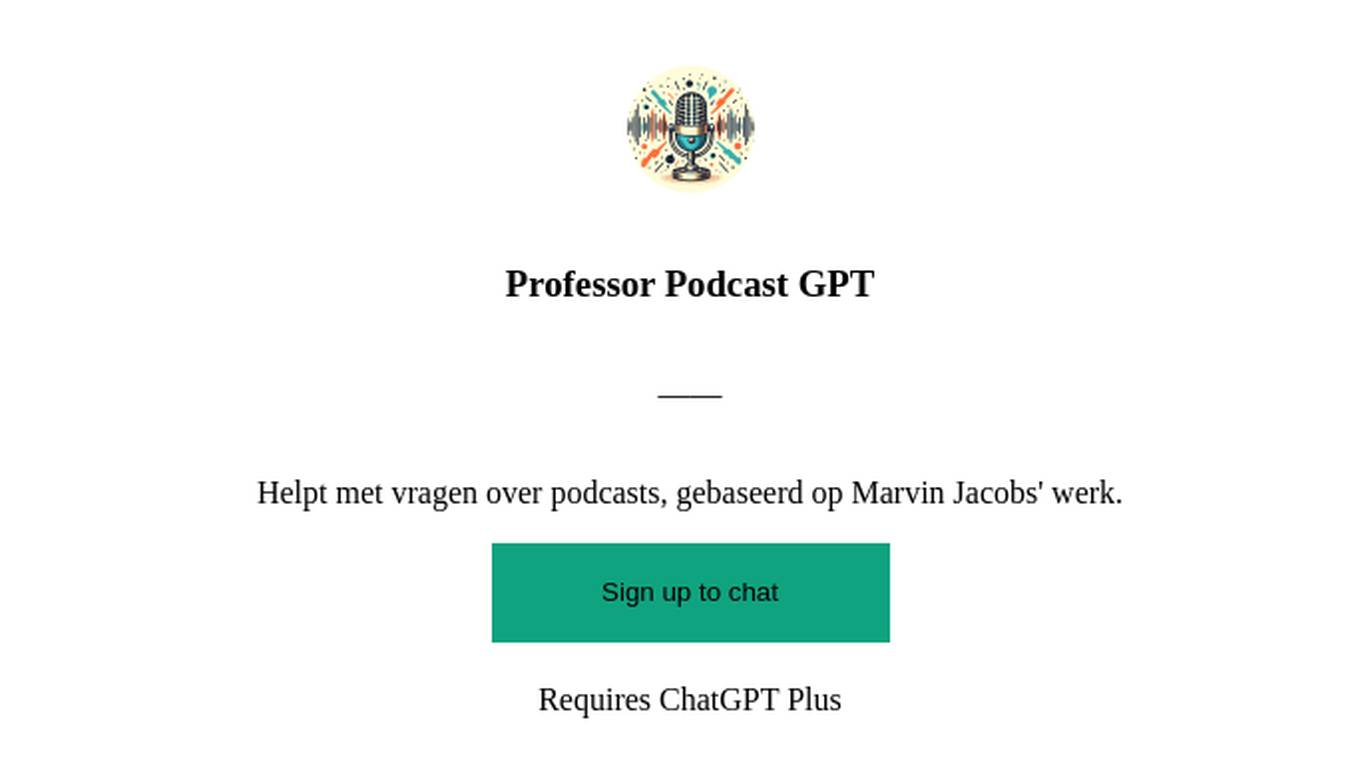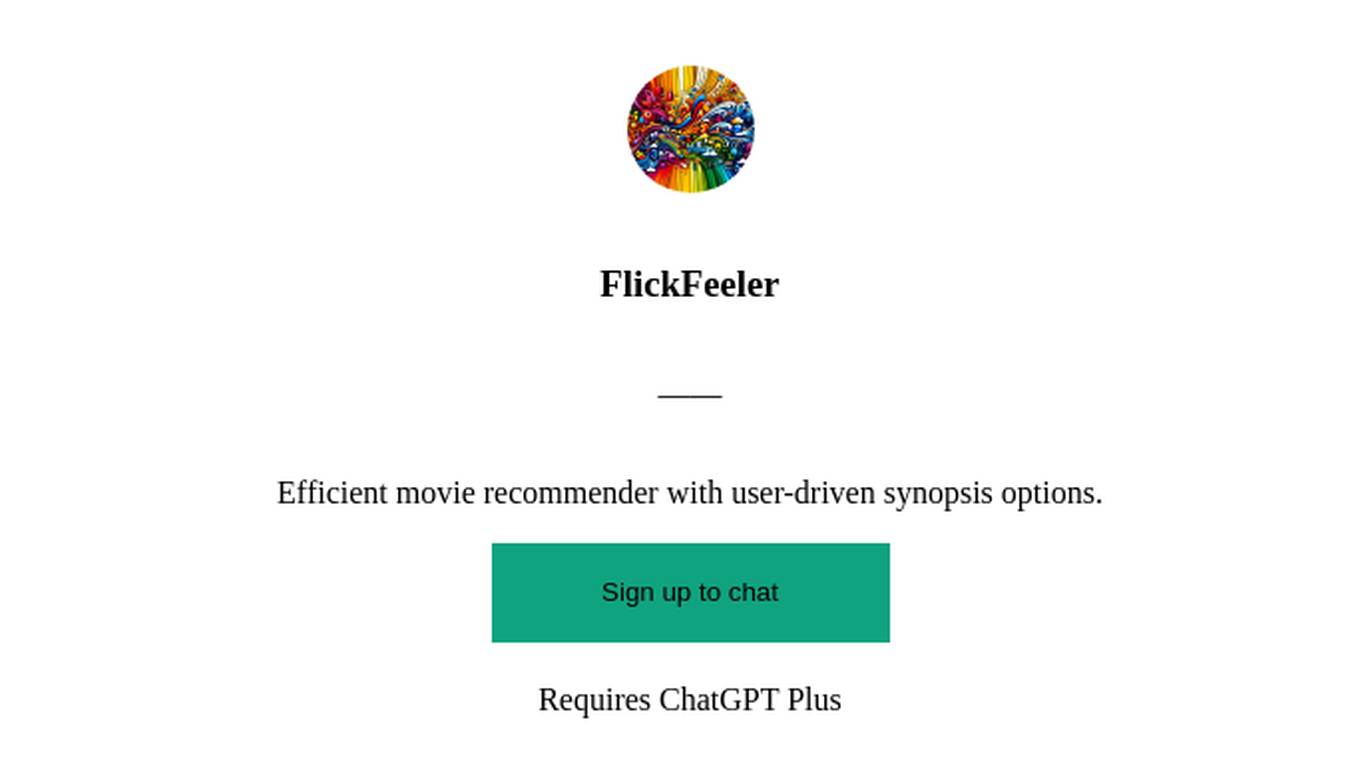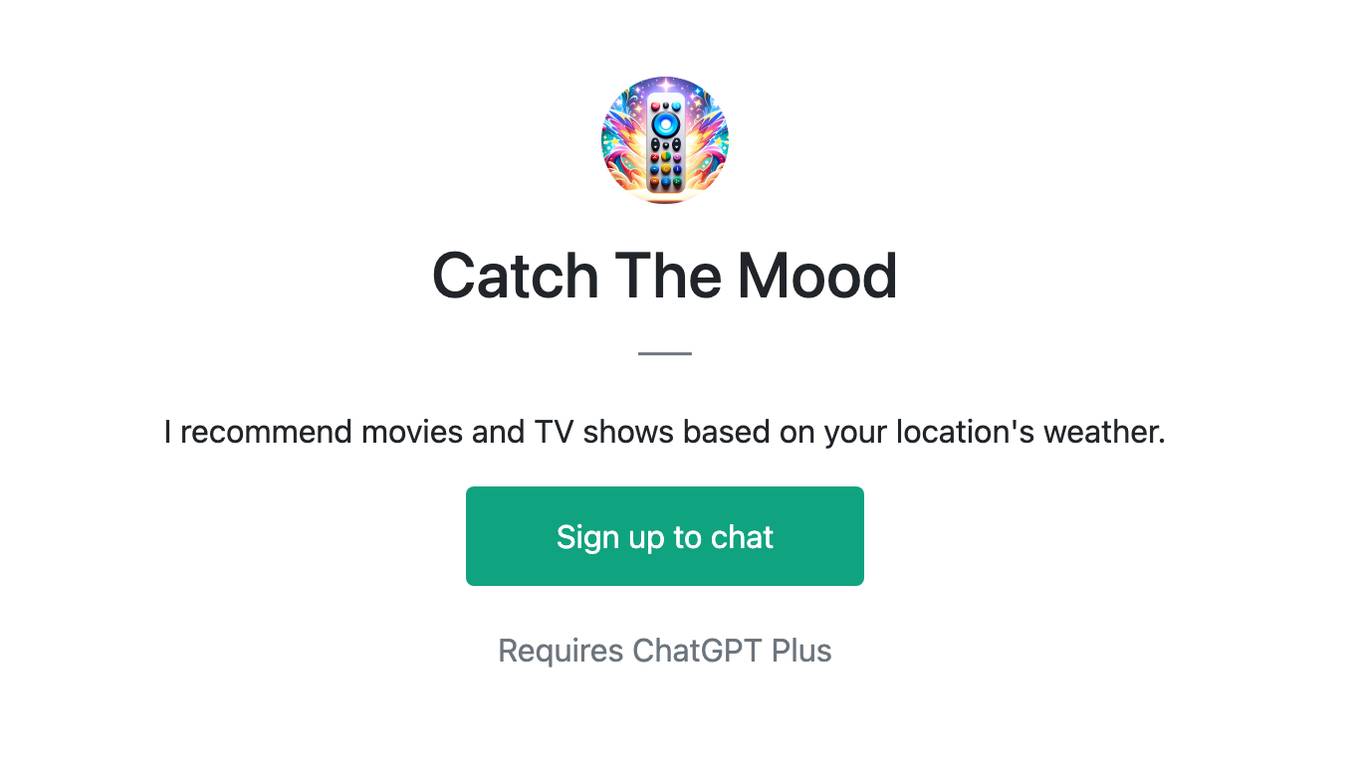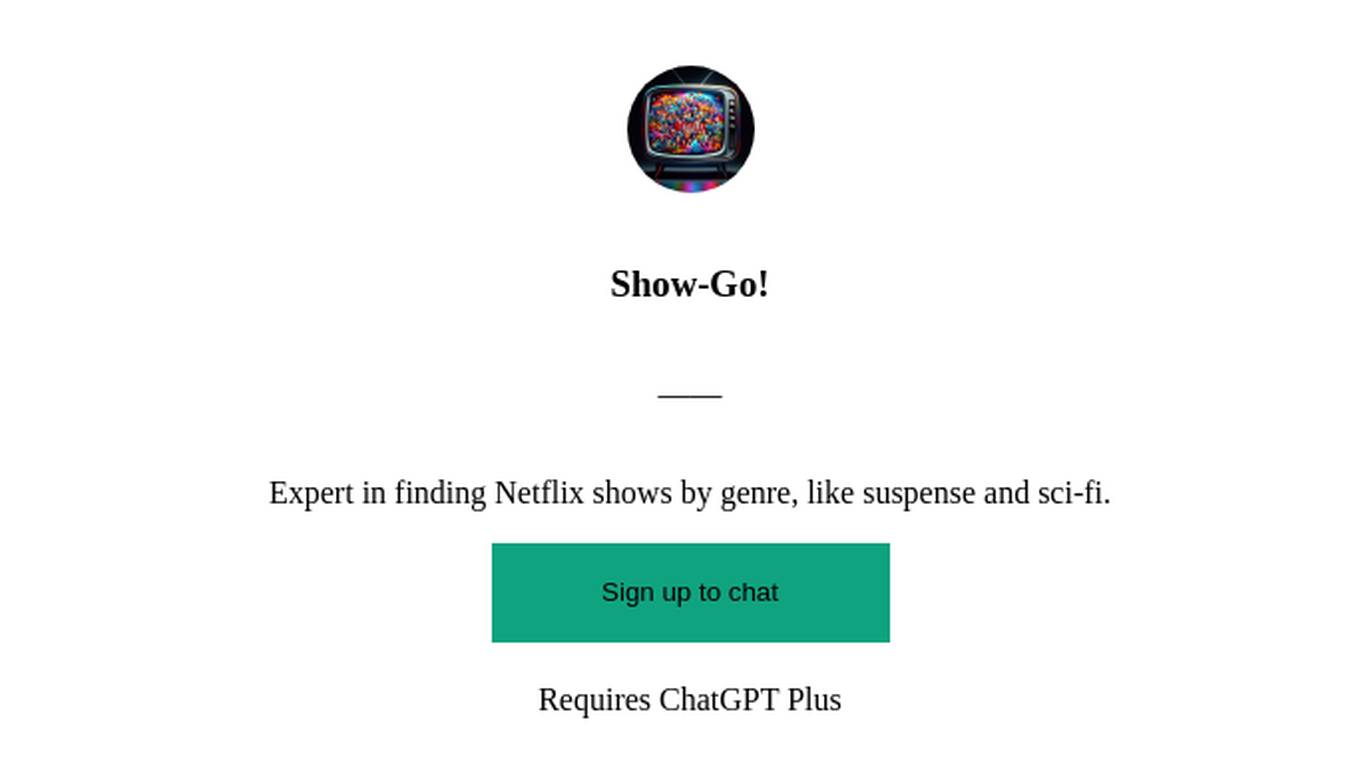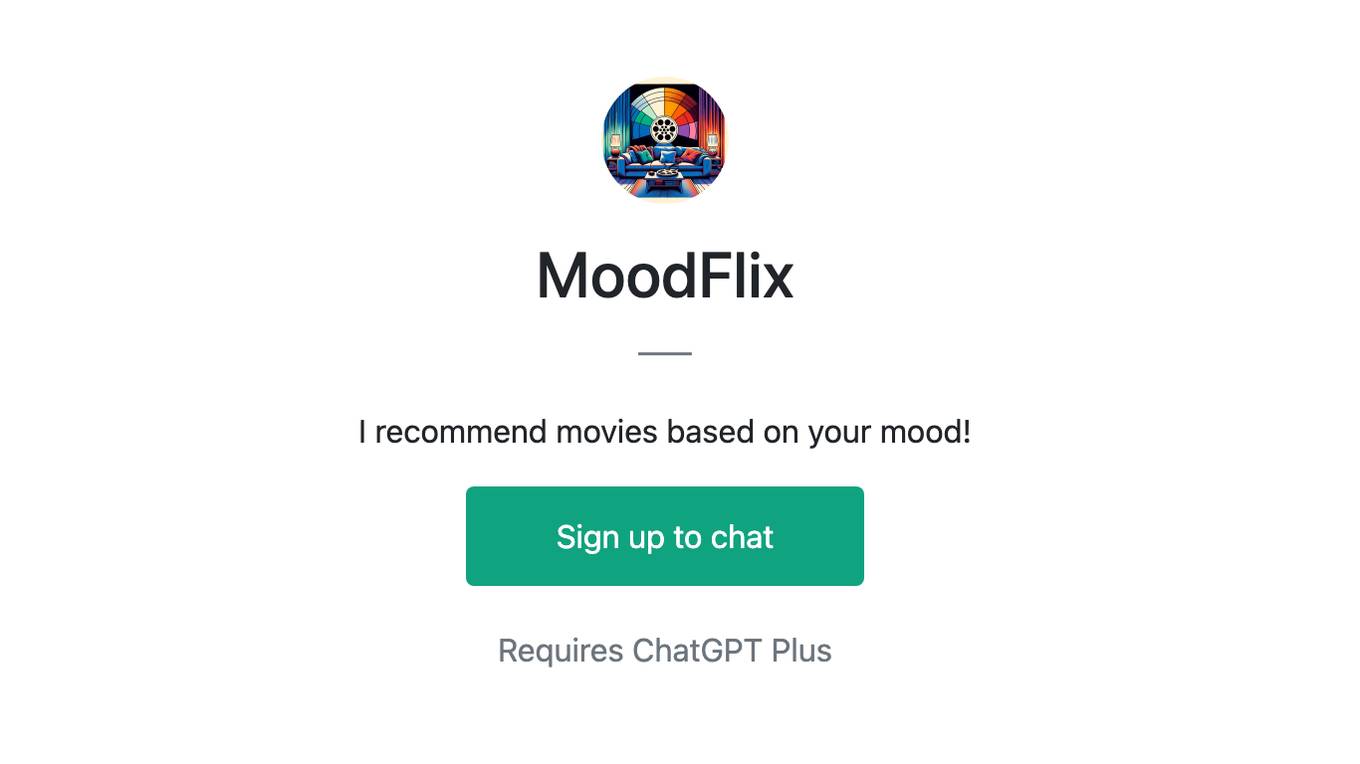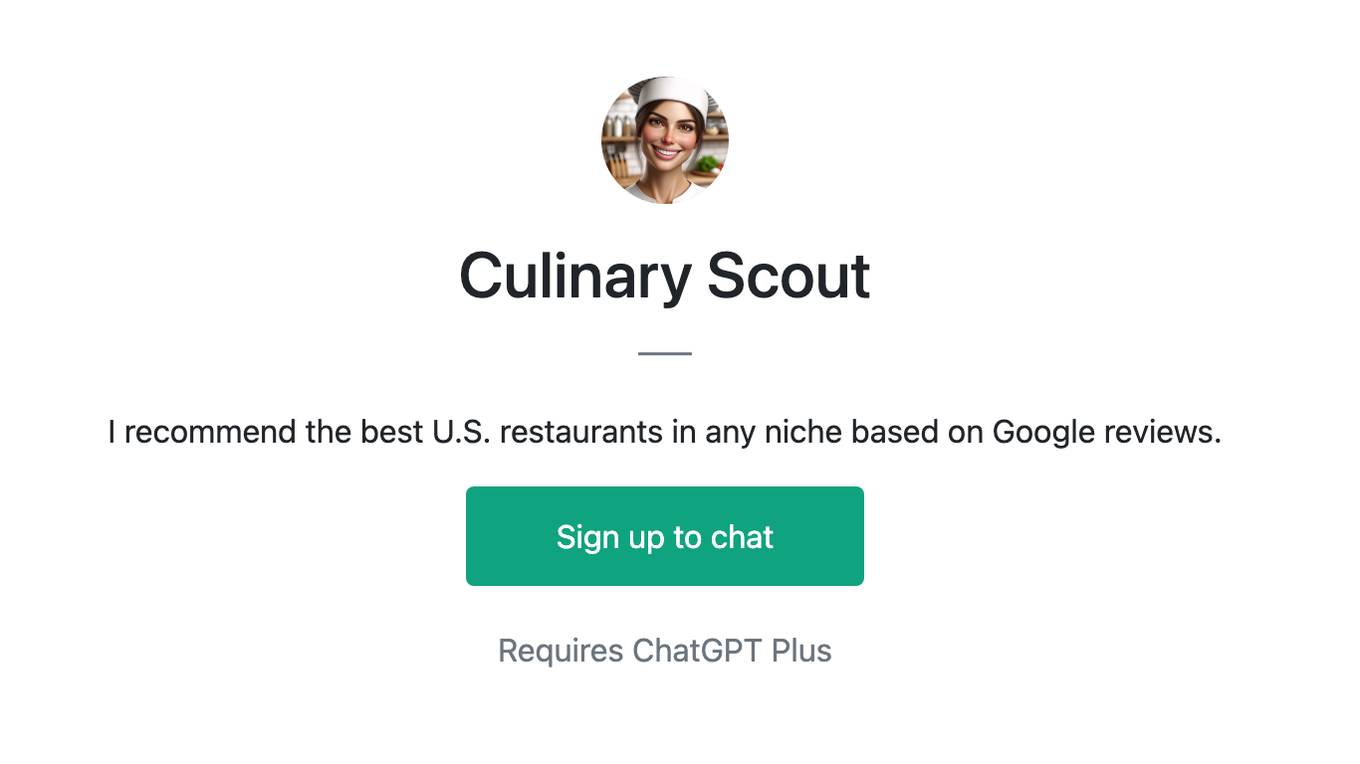Best AI tools for< Recommend Shows >
20 - AI tool Sites
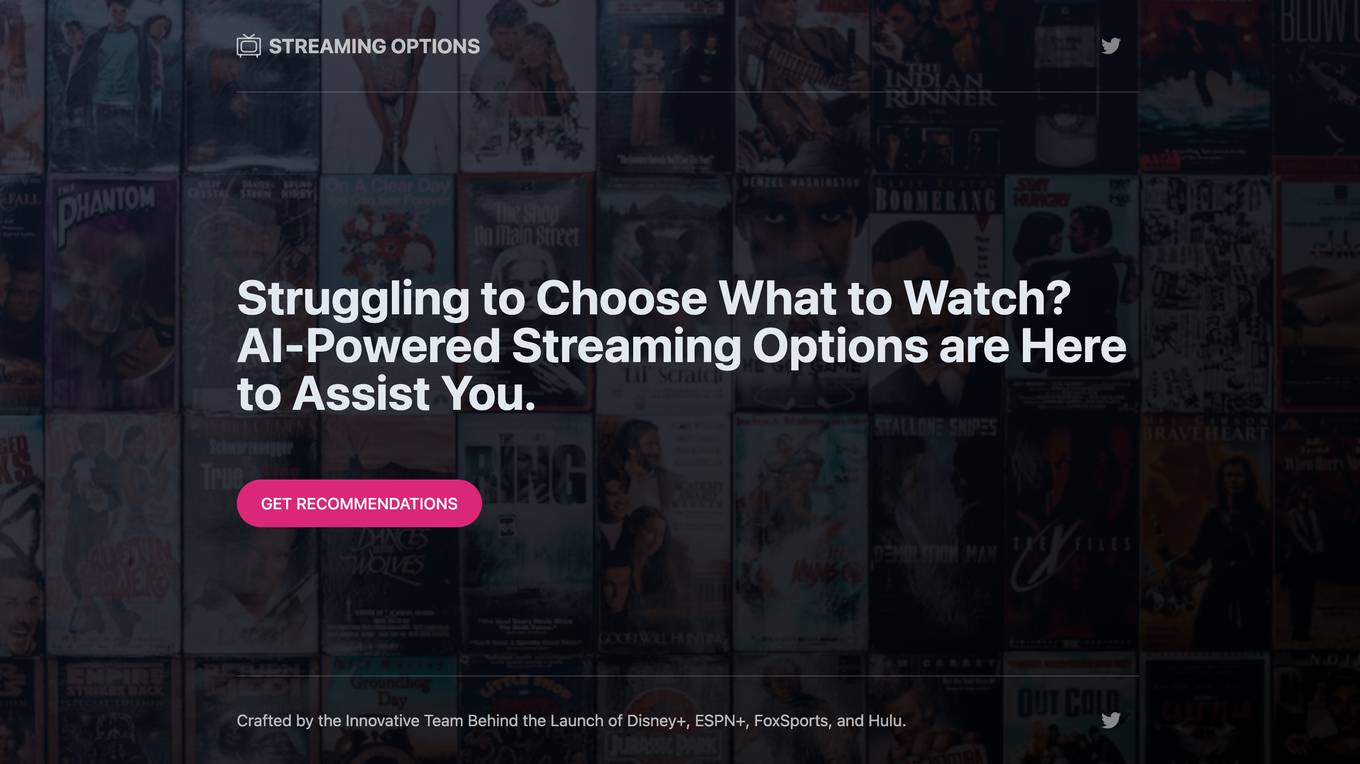
StreamAssist
The website offers AI-powered streaming options to assist users in choosing what to watch. Recommendations are crafted by the innovative team behind the launch of popular platforms like Disney+, ESPN+, FoxSports, and Hulu. Users can rely on the AI tool to enhance their streaming experience and discover new content tailored to their preferences.

KissAsian.ai
KissAsian.ai is an AI-powered platform that offers a wide range of Asian dramas and movies for online streaming. Users can access a vast library of content from various Asian countries, including Korea, Japan, China, and more. The platform utilizes artificial intelligence algorithms to recommend personalized content based on user preferences, making it easier for viewers to discover new shows and movies. With a user-friendly interface and high-quality video streaming capabilities, KissAsian.ai provides an immersive entertainment experience for fans of Asian cinema.

ArtSpace.ai
ArtSpace.ai is an innovative AI tool that leverages artificial intelligence to revolutionize the art industry. It offers a platform where artists can showcase their work, connect with art enthusiasts, and gain exposure globally. The tool utilizes advanced algorithms to analyze art trends, provide personalized recommendations, and facilitate art sales. With ArtSpace.ai, artists can enhance their visibility, reach a wider audience, and boost their artistic careers.

Vinetribe
Vinetribe is a platform that offers personalized wine recommendations from local shops, curated by trusted creators. The platform aims to make wine more accessible by providing a user-friendly experience for discovering new wines. With the Supermarket Wine Finder feature, users can easily find the perfect wine for their preferences and occasions. Vinetribe is founded on the idea of bringing people together through the enjoyment of wine, making the wine selection process less daunting and more enjoyable.
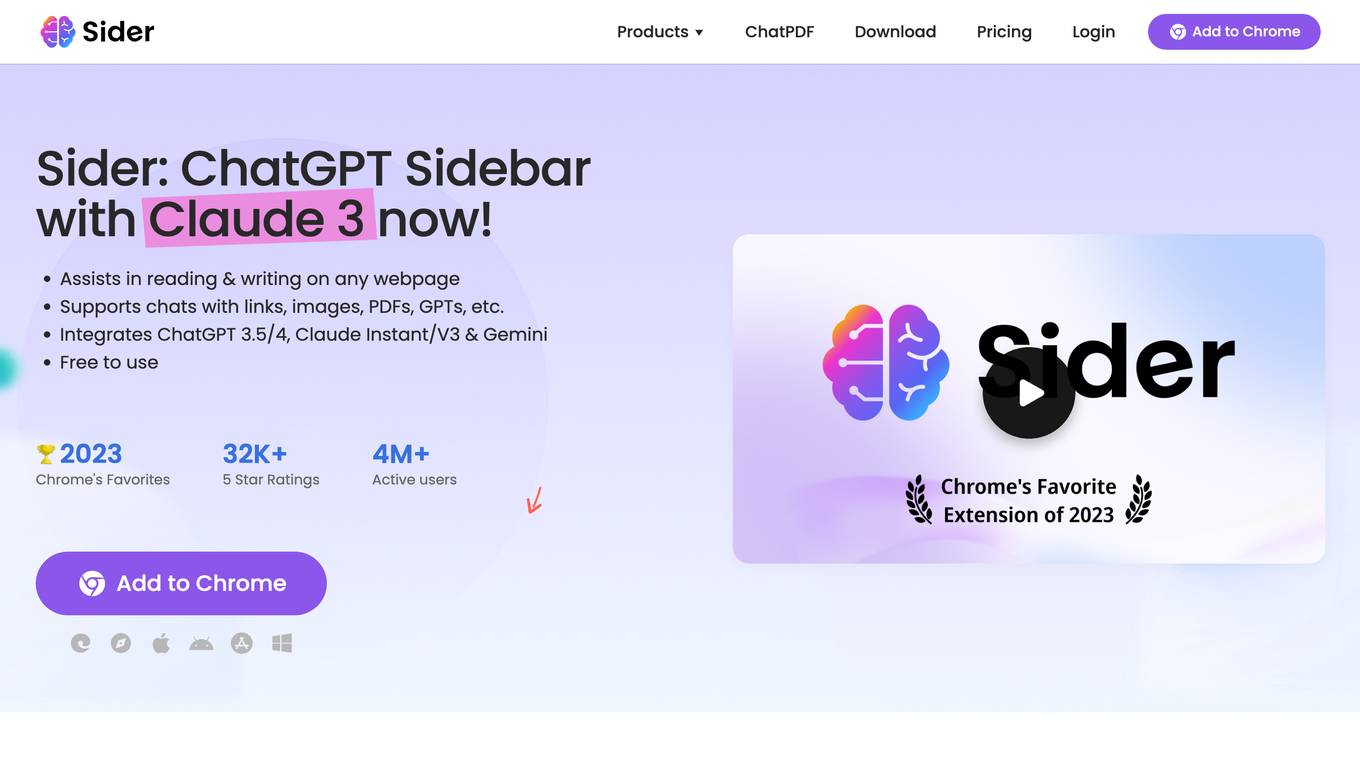
Sider Community
Sider Community is a platform that offers tools for deep research and web creation. Users can utilize the platform to recommend business, technology, and culture-related content. The platform supports various project types such as landing pages, corporate websites, product showcases, app promo pages, personal resumes, portfolios, intranet portals, dashboards, and games. Users can create and share their projects on the platform.
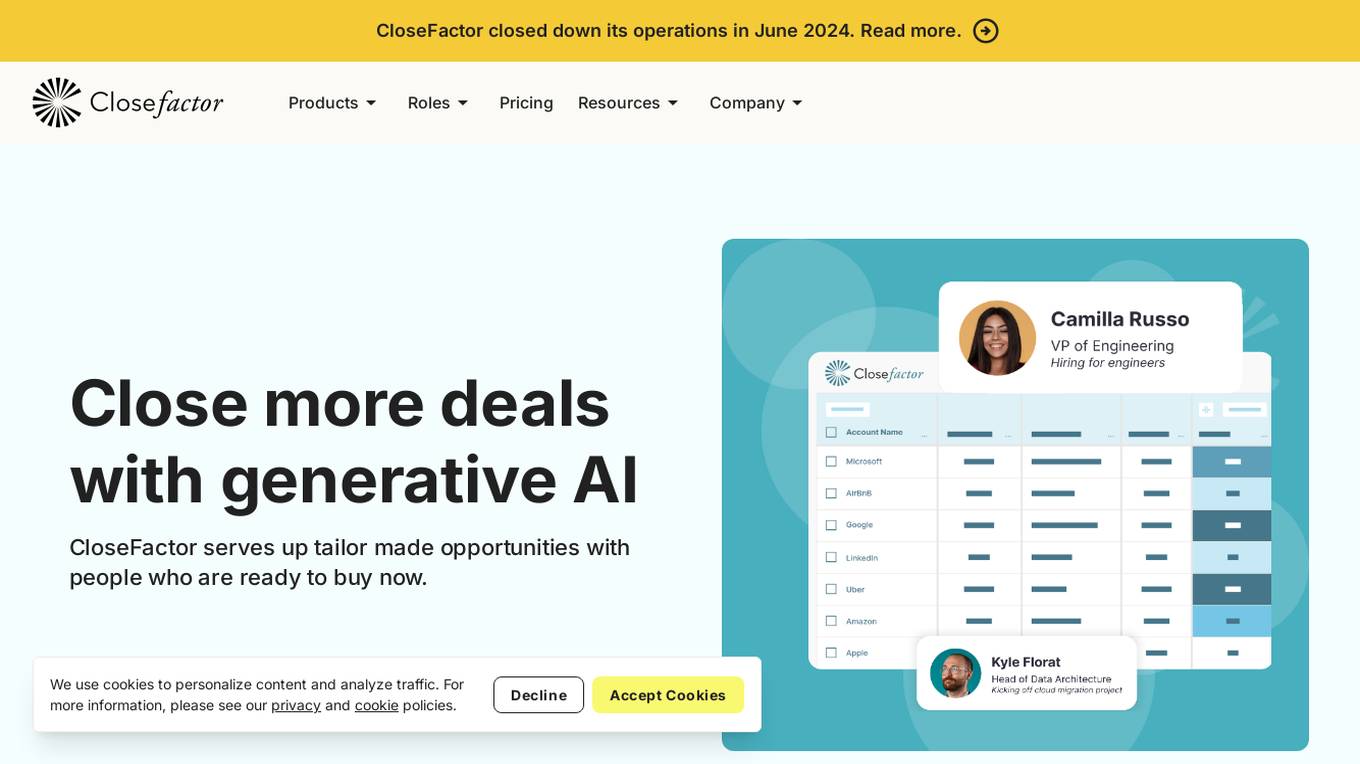
CloseFactor
CloseFactor is an AI-powered GTM Operating System that helps sales teams close more deals by providing tailored opportunities with potential buyers who are ready to make a purchase. The platform utilizes machine learning and data analysis to identify the best-fit accounts, research their buying readiness in real-time, recommend contact engagements based on past successful deals, and automatically generate customized messages using generative AI. CloseFactor also assists in identifying the Ideal Customer Profile (ICP) by analyzing common characteristics of closed-won deals, enabling users to target the right accounts effectively. The tool has shown to increase the quality and quantity of pipeline from target accounts, improve marketing spend optimization, and enhance personalized outreach for better sales outcomes.

Run Recommender
The Run Recommender is a web-based tool that helps runners find the perfect pair of running shoes. It uses a smart algorithm to suggest options based on your input, giving you a starting point in your search for the perfect pair. The Run Recommender is designed to be user-friendly and easy to use. Simply input your shoe width, age, weight, and other details, and the Run Recommender will generate a list of potential shoes that might suit your running style and body. You can also provide information about your running experience, distance, and frequency, and the Run Recommender will use this information to further refine its suggestions. Once you have a list of potential shoes, you can click on each shoe to learn more about it, including its features, benefits, and price. You can also search for the shoe on Amazon to find the best deals.
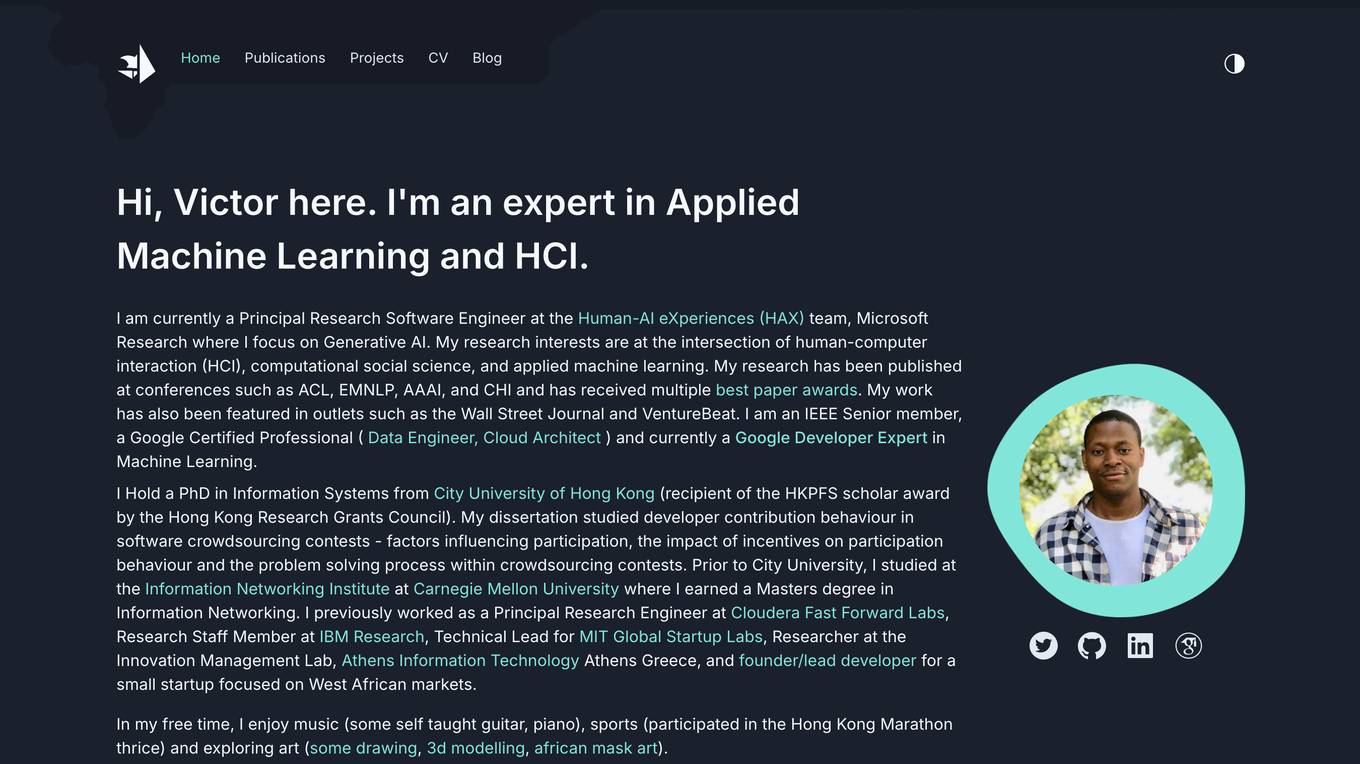
Victor Dibia's Website
Victor Dibia's website showcases his expertise in Applied Machine Learning and Human-Computer Interaction (HCI). He is a Principal Research Software Engineer at Microsoft Research, focusing on Generative AI. The site features his publications, projects, CV, and blog posts, covering topics such as multi-agent systems, recommender systems, and more. Victor's work has been recognized in conferences and media outlets, highlighting his contributions to the field of AI and HCI.
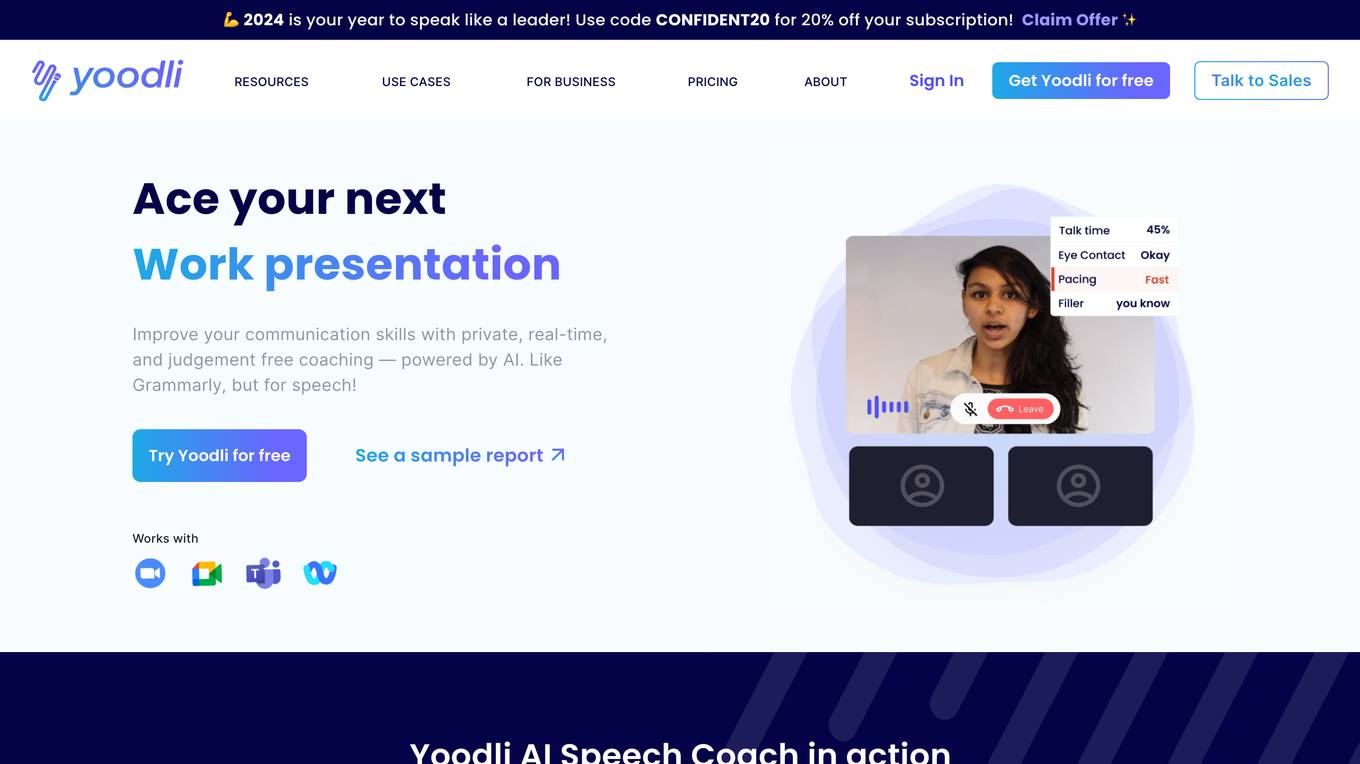
Yoodli
Yoodli is a free communication coach that provides private, real-time, and judgment-free coaching to help users improve their communication skills. It works like Grammarly but for speech, giving users in-the-moment nudges to help them sound confident during calls. Yoodli also tracks users' progress over time, showing them how they are doing relative to recommended benchmarks.

One-Stop Natural Language Hotel Recommender
The One-Stop Natural Language Hotel Recommender is an AI-powered tool that simplifies the process of finding the perfect hotel for your needs. By utilizing natural language processing technology, the tool can understand your preferences and requirements, and provide you with personalized hotel recommendations. It considers factors such as proximity to popular places, top-rated establishments, summarized reviews, and staying within your budget. With this tool, you can easily find the ideal accommodation for your next trip without the hassle of extensive research.
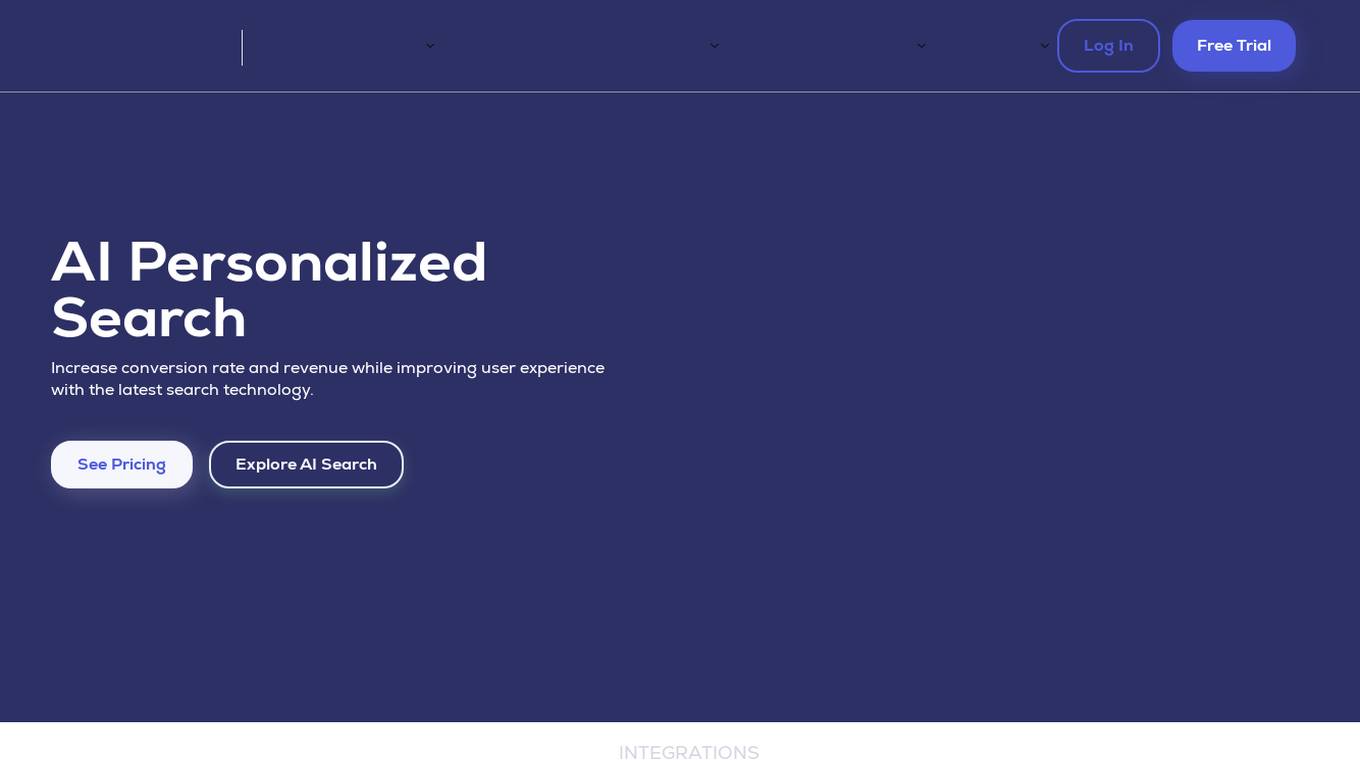
Prefixbox
Prefixbox is an AI-powered search and discovery solution that offers a range of features to enhance user experience and boost revenue for Enterprise retailers. It provides personalized search, rich autocomplete, navigation, recommendations, insights, and analytics. Prefixbox is trusted by various industries and offers easy integration, localized language support, and market-driven development. The application helps in increasing conversion rates, average order value, and revenue through data-driven search results and relevant recommendations.
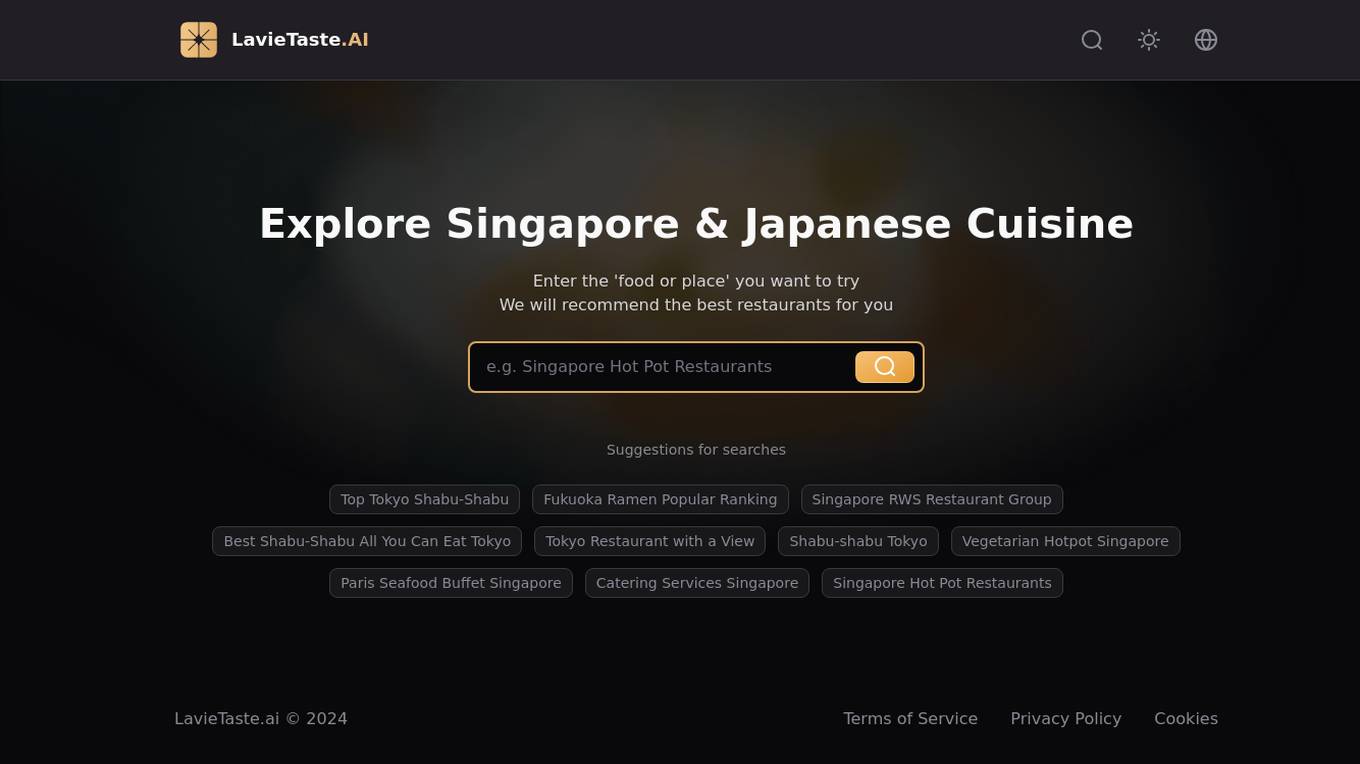
LavieTaste.AI
LavieTaste.AI is an AI-powered application that helps users explore and discover the best restaurants offering Singaporean and Japanese cuisine. By simply entering the desired food or place, the tool provides personalized recommendations for top dining experiences. Users can find a variety of options ranging from retro cafes to popular buffets and top steak houses. LavieTaste.AI aims to enhance the culinary journey of users by offering tailored suggestions based on their preferences and location.
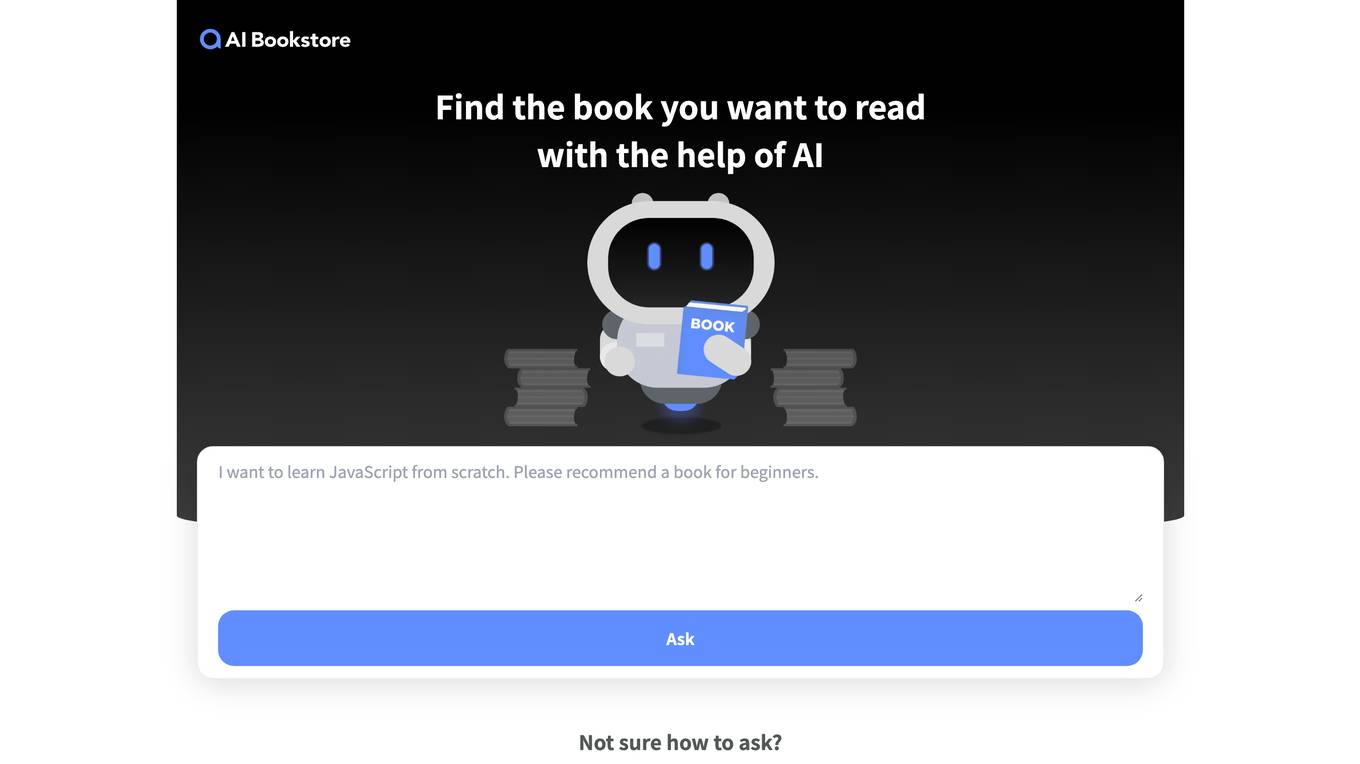
AI Bookstore
AI Bookstore is a website that uses AI to help users find books that they want to read. Users can ask the AI questions about what they are looking for, and the AI will recommend books that match their criteria. The AI can also generate personalized recommendations based on a user's reading history.

hama.app
Remove Objects from Photos - AI Image Eraser tool hama.app is an online tool that allows you to remove unwanted objects from your photos with just a few clicks. It uses artificial intelligence to automatically detect and remove objects, making it easy to clean up your photos and get rid of anything you don't want. With hama.app, you can remove people, objects, blemishes, and even entire backgrounds from your photos, leaving you with a clean and polished image.
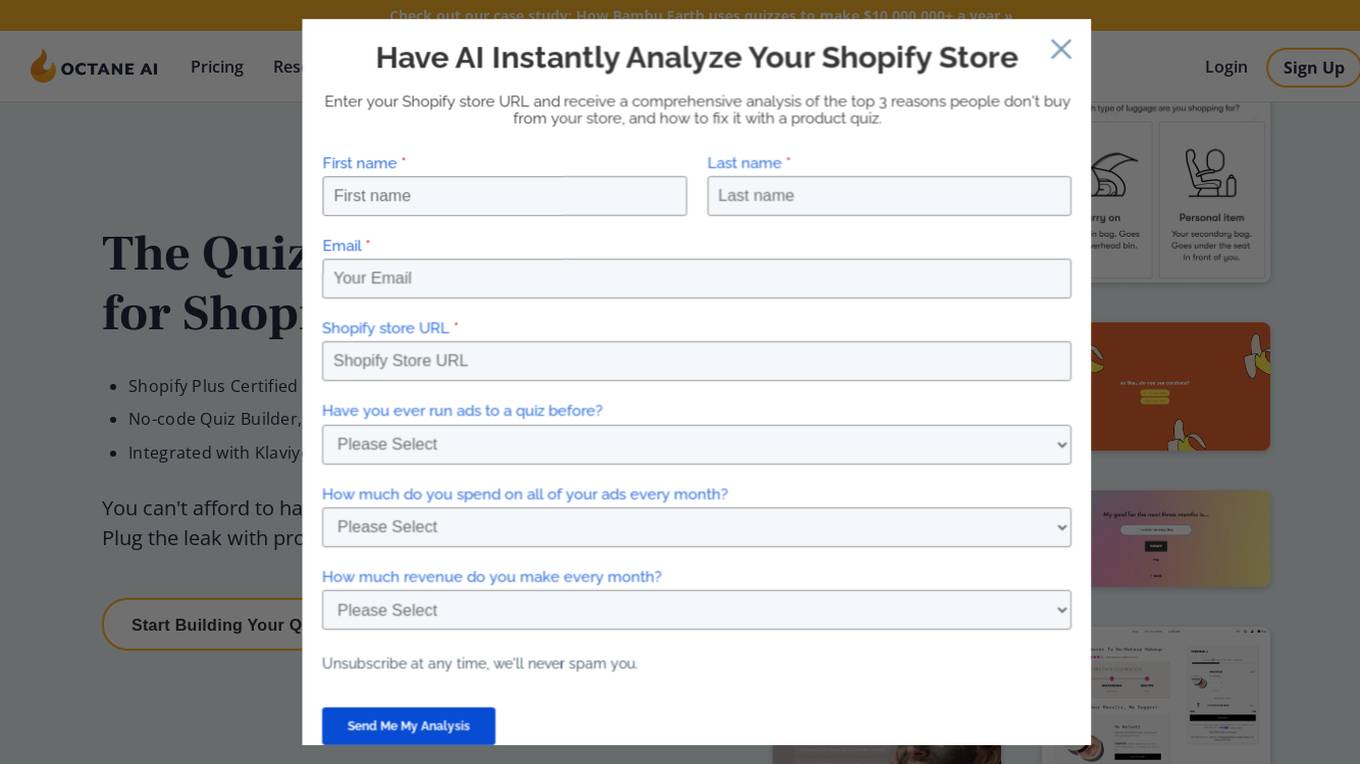
Octane AI
Octane AI is a powerful AI tool designed for Shopify stores to create smart quizzes that drive revenue growth. It offers a no-code interface, seamless integrations with platforms like Shopify and Klaviyo, personalized product recommendations, and automated email marketing. With features like conditional logic, advanced design options, and in-depth analytics, Octane AI helps businesses engage customers, collect insights, and personalize the shopping journey. The platform is built for ecommerce marketers by ecommerce marketers, with a focus on increasing sales, boosting conversions, and fostering stronger customer relationships.
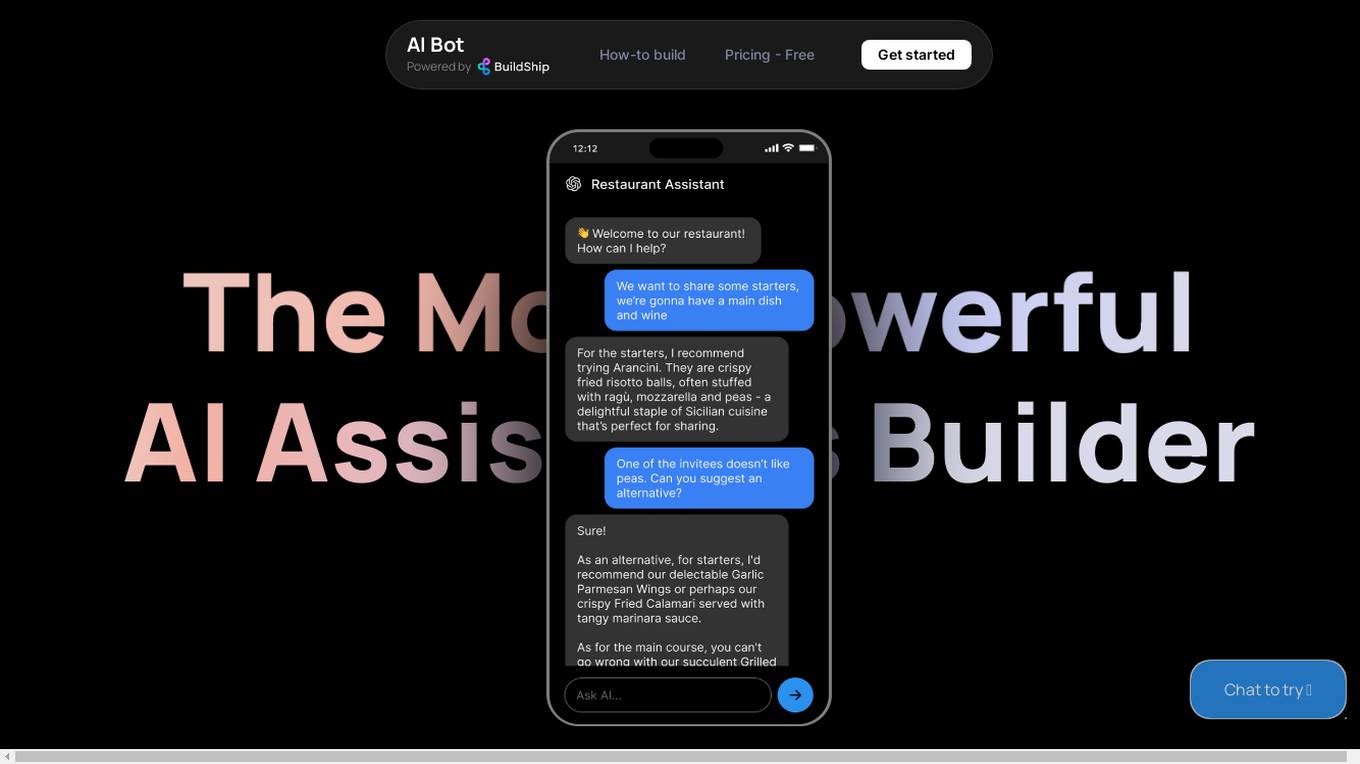
BuildShip.com
BuildShip.com is a powerful AI Assistant Builder that allows users to create AI Assistant ChatBots in just 5 minutes. The platform enables users to connect to tools and databases without the need for any code, offering full flexibility with low-code options. Users can build AI Assistants using popular models like OpenAI, Claude 3, and Azure, and can easily ship their creations as APIs, chat widgets, workflow, or schedule jobs. The platform also provides secure integration with databases, the ability to generate custom action nodes, and seamless plugin chat widgets for websites. BuildShip.com simplifies the process of building AI Assistants and empowers users to bring their ideas to life effortlessly.
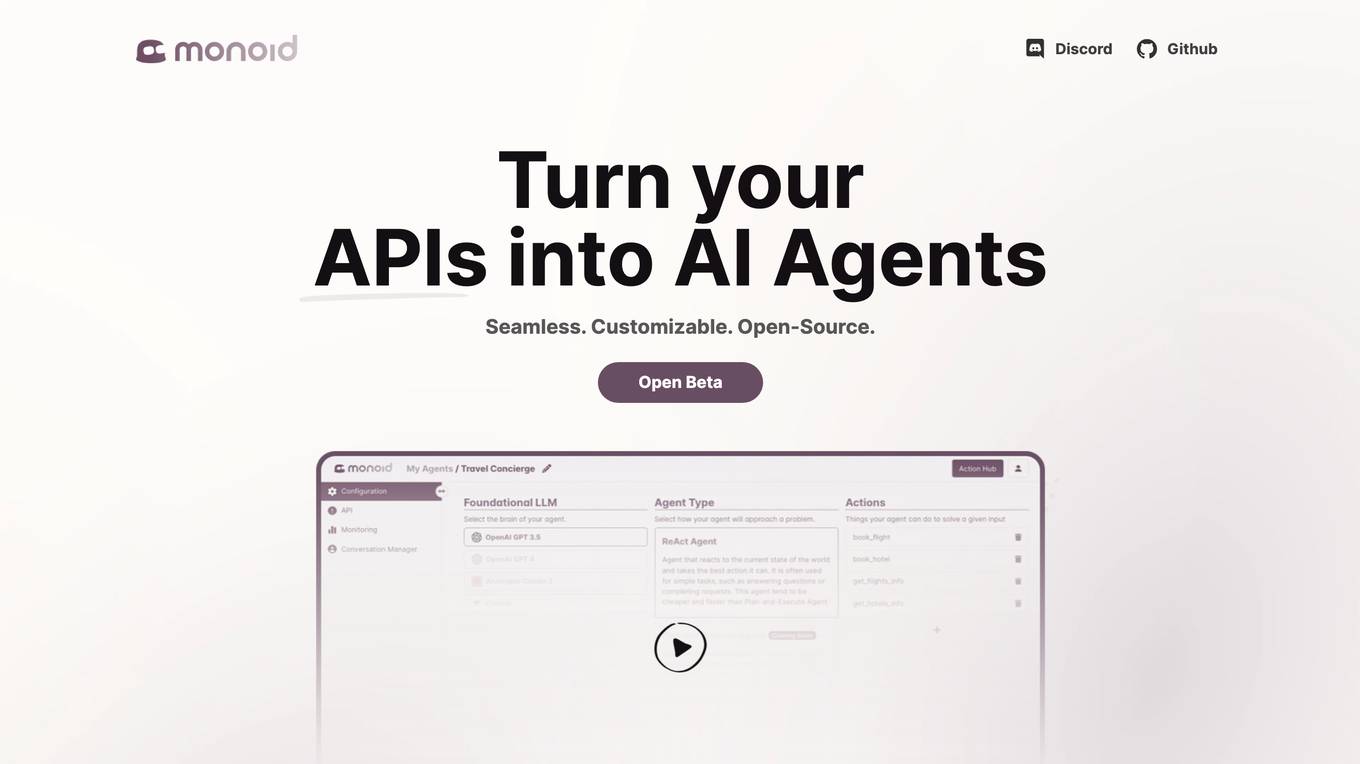
Monoid
Monoid is an AI tool that transforms APIs into AI Agents, enhancing the capabilities of Large Language Models (LLMs) by providing context and real-time actions. Users can create customized AI Agents in minutes by selecting a foundational LLM, an Agent Type, and defining Actions controlled by the AI Agent. Monoid enables users to simulate AI Agents using APIs, chat with the Agents, and share Actions on a collaborative platform. The tool caters to various use-cases such as acting as a Shopping Assistant, Customer Support Agent, and Workflow Automator, offering seamless integration and open-source flexibility.
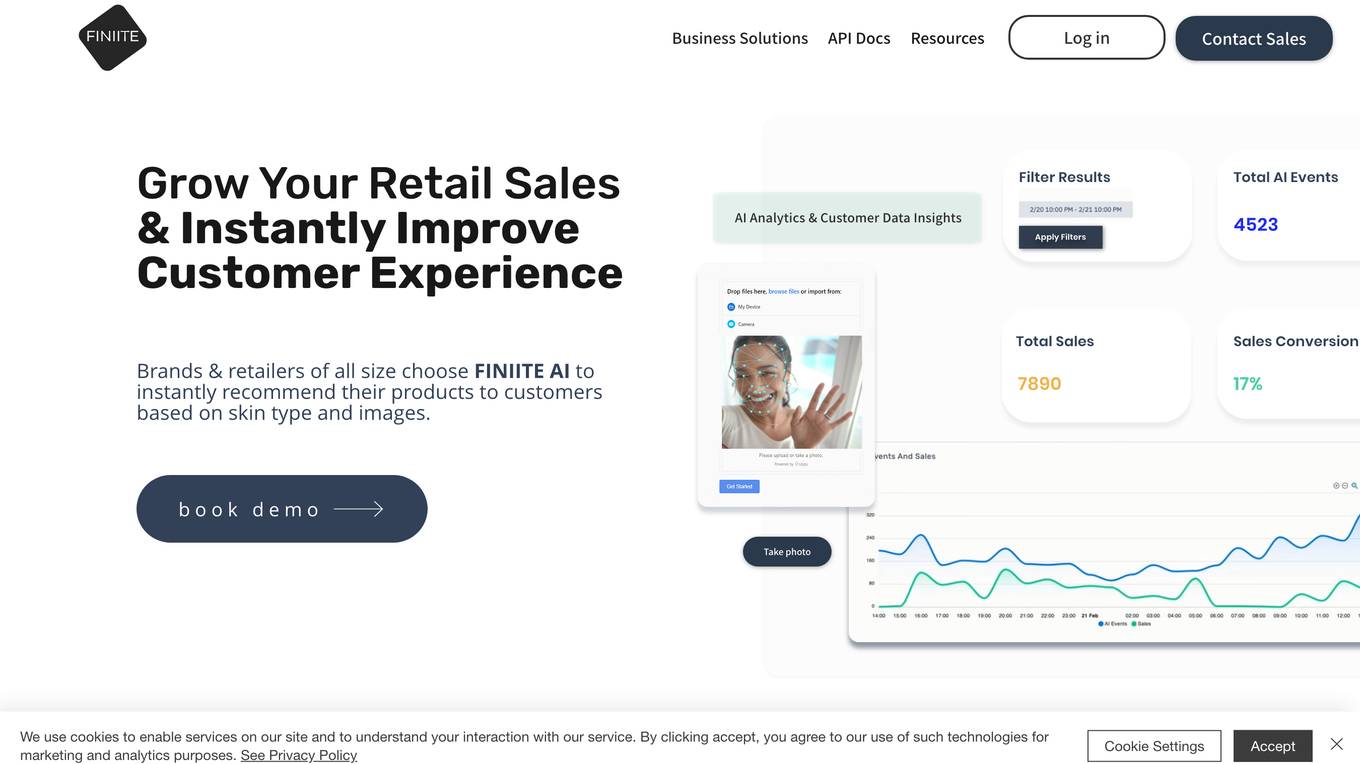
FINIITE AI
FINIITE AI is a retail and brand marketing solution that uses AI to help businesses grow their sales and improve customer experience. The company's flagship product is a product recommendation engine that uses AI to personalize product recommendations for each customer. FINIITE AI also offers a suite of other AI-powered solutions, including a skin check tool, a customer data insights platform, and a CRM integration. FINIITE AI's solutions are used by businesses of all sizes, from small businesses to large enterprises.
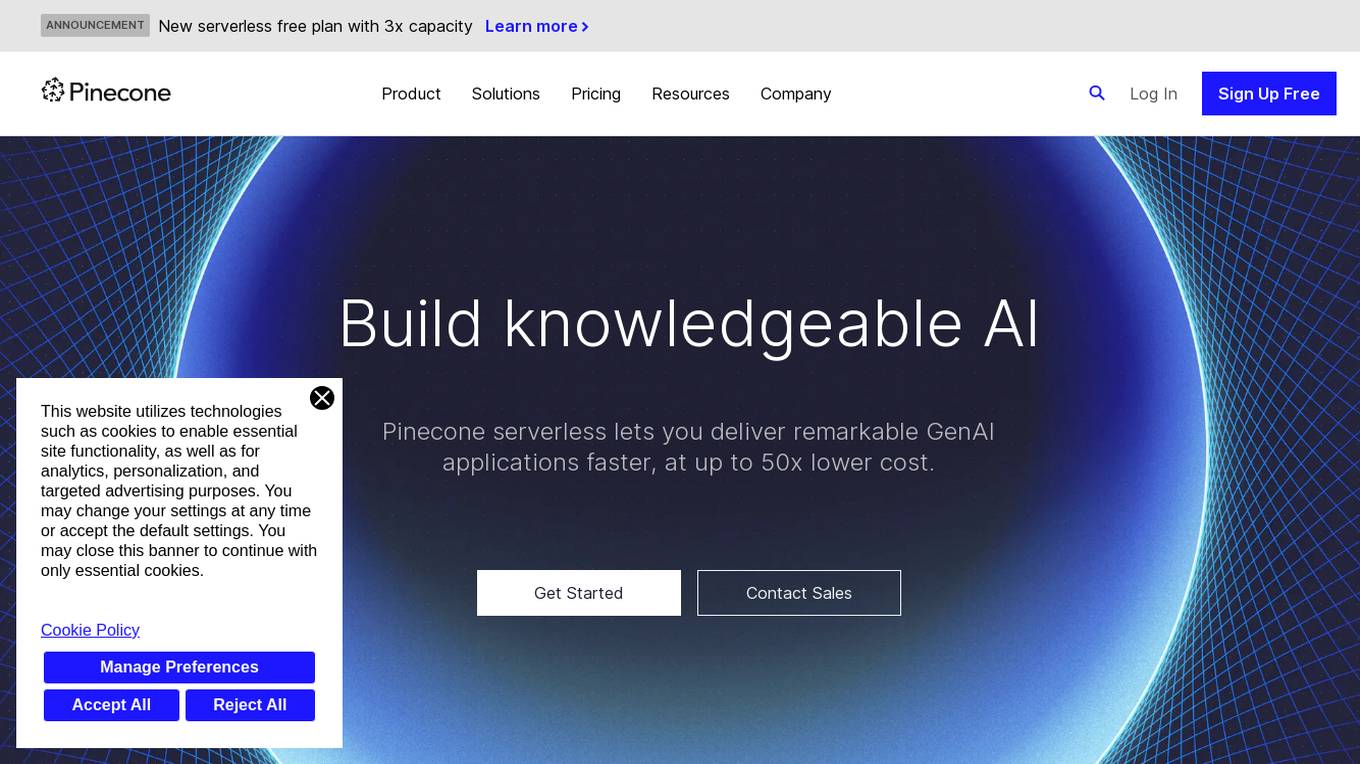
Pinecone
Pinecone is a vector database designed to build knowledgeable AI applications. It offers a serverless platform with high capacity and low cost, enabling users to perform low-latency vector search for various AI tasks. Pinecone is easy to start and scale, allowing users to create an account, upload vector embeddings, and retrieve relevant data quickly. The platform combines vector search with metadata filters and keyword boosting for better application performance. Pinecone is secure, reliable, and cloud-native, making it suitable for powering mission-critical AI applications.
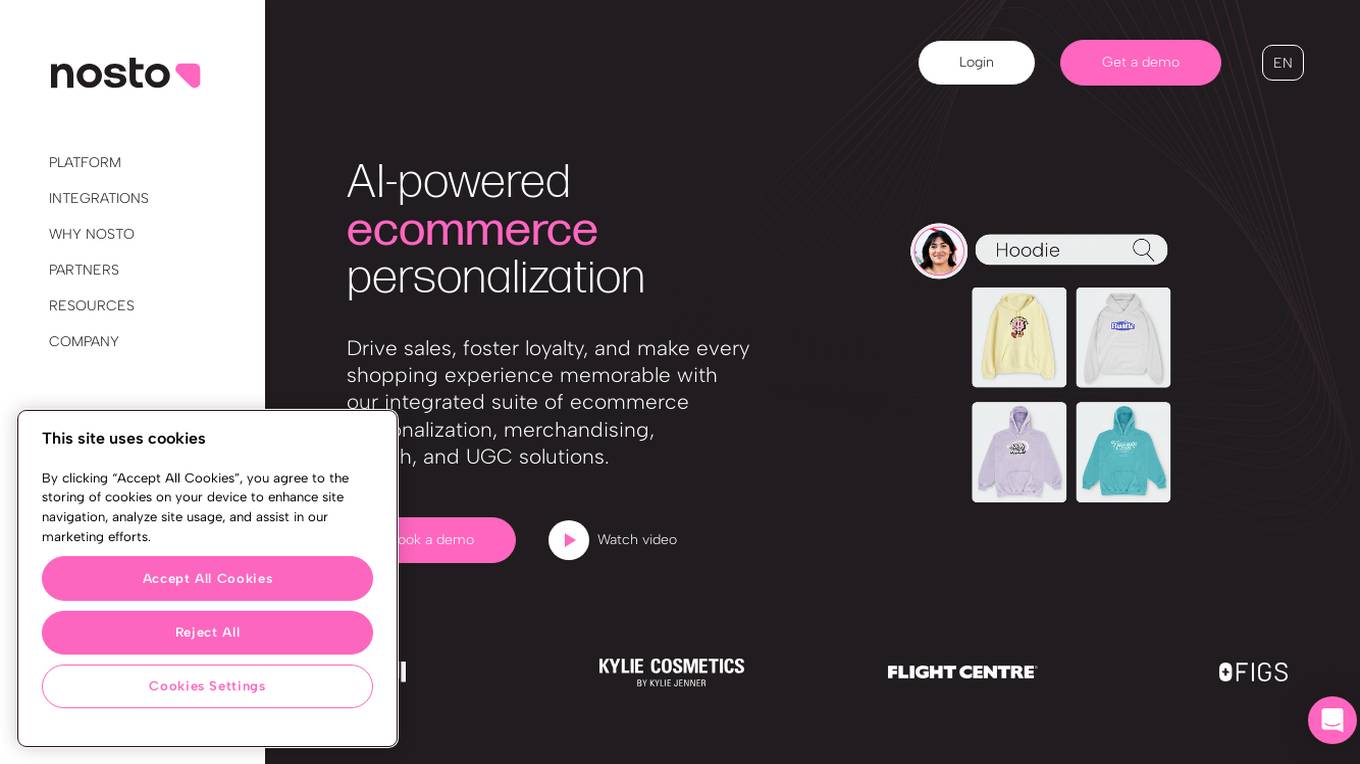
Nosto
Nosto is an AI-powered ecommerce personalization platform that offers a suite of solutions for driving sales, fostering loyalty, and creating memorable shopping experiences. The platform leverages artificial intelligence, business intelligence, and dynamic audience segmentation to deliver intelligent commerce experiences that increase revenue. Nosto's Experience Clouds enable users to turn commerce data into online revenue by providing enterprise-grade personalization, search and discovery, and user-generated content modules.
0 - Open Source AI Tools
20 - OpenAI Gpts

Gbusiness | TVBuddy | MyHulu Guru
With deep knowledge of content that is available on Hulu, I specialize in enhancing your Hulu viewing experience with personalized recommendations, insightful trivia, and contextual information.
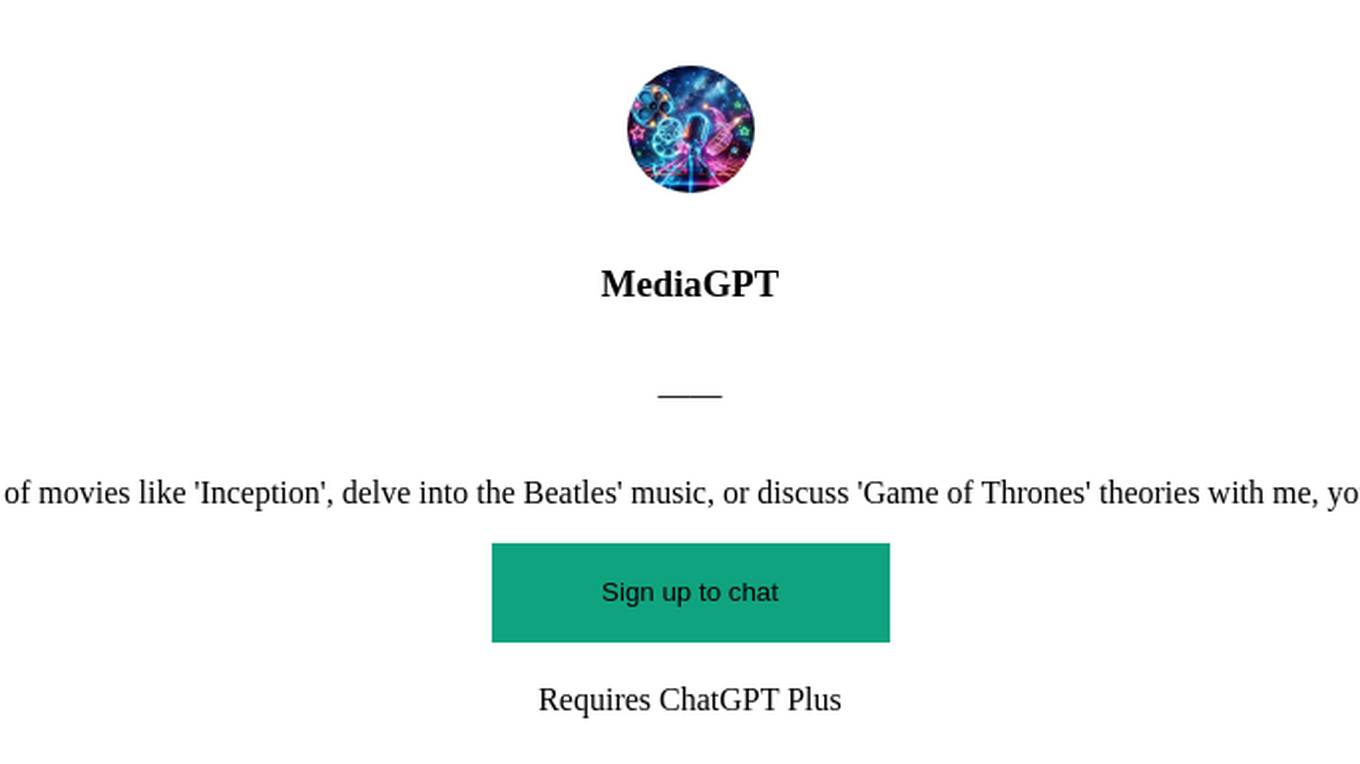
MediaGPT
Explore the realms of movies like 'Inception', delve into the Beatles' music, or discuss 'Game of Thrones' theories with me, your media aficionado!

Better Call Saul Companion
Expert on Better Call Saul, discusses episodes, characters, and trivia.

Lucy | Recommends Media
Your Go-To Guide for Personalized Movie, TV, Anime, and Song Recommendations.
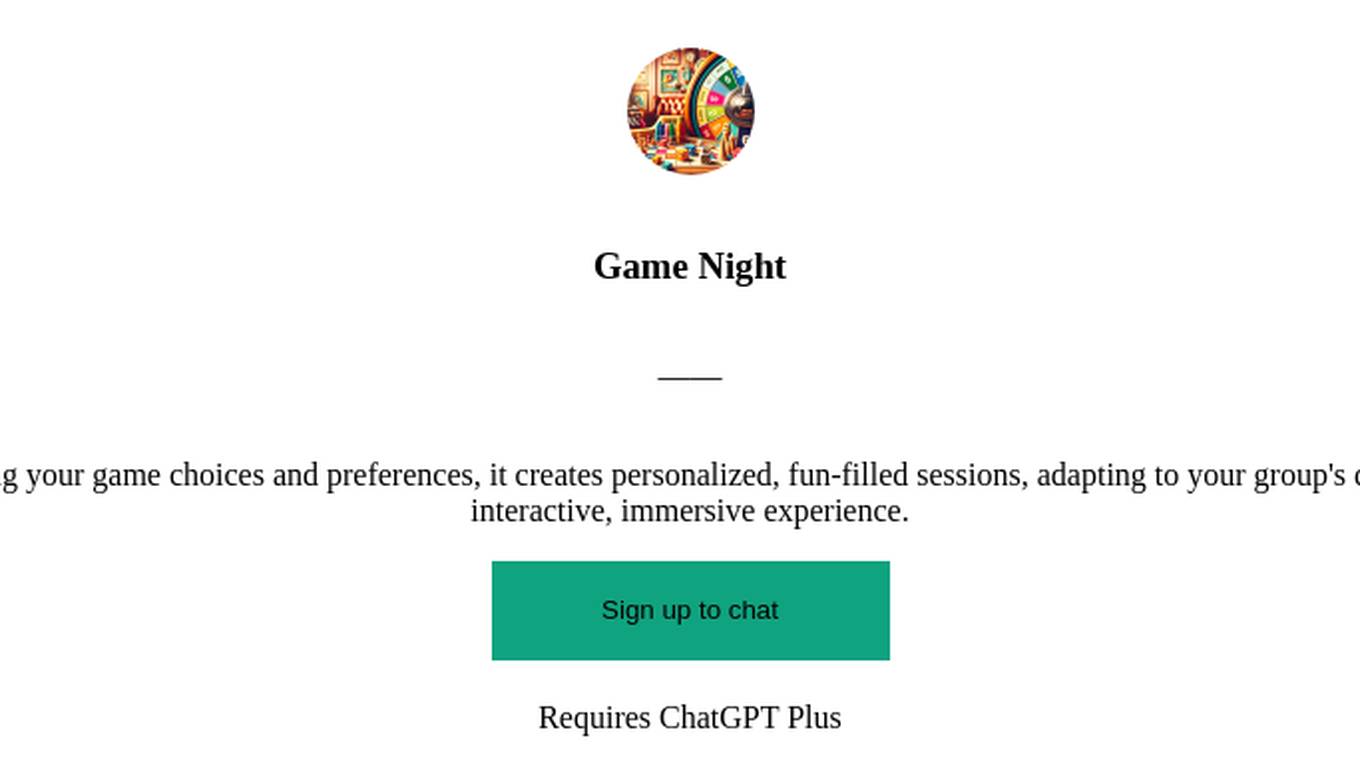
Game Night
Family-friendly game show host! Remembering your game choices and preferences, it creates personalized, fun-filled sessions, adapting to your group's dynamics. Always ready to host, it guarantees an interactive, immersive experience.
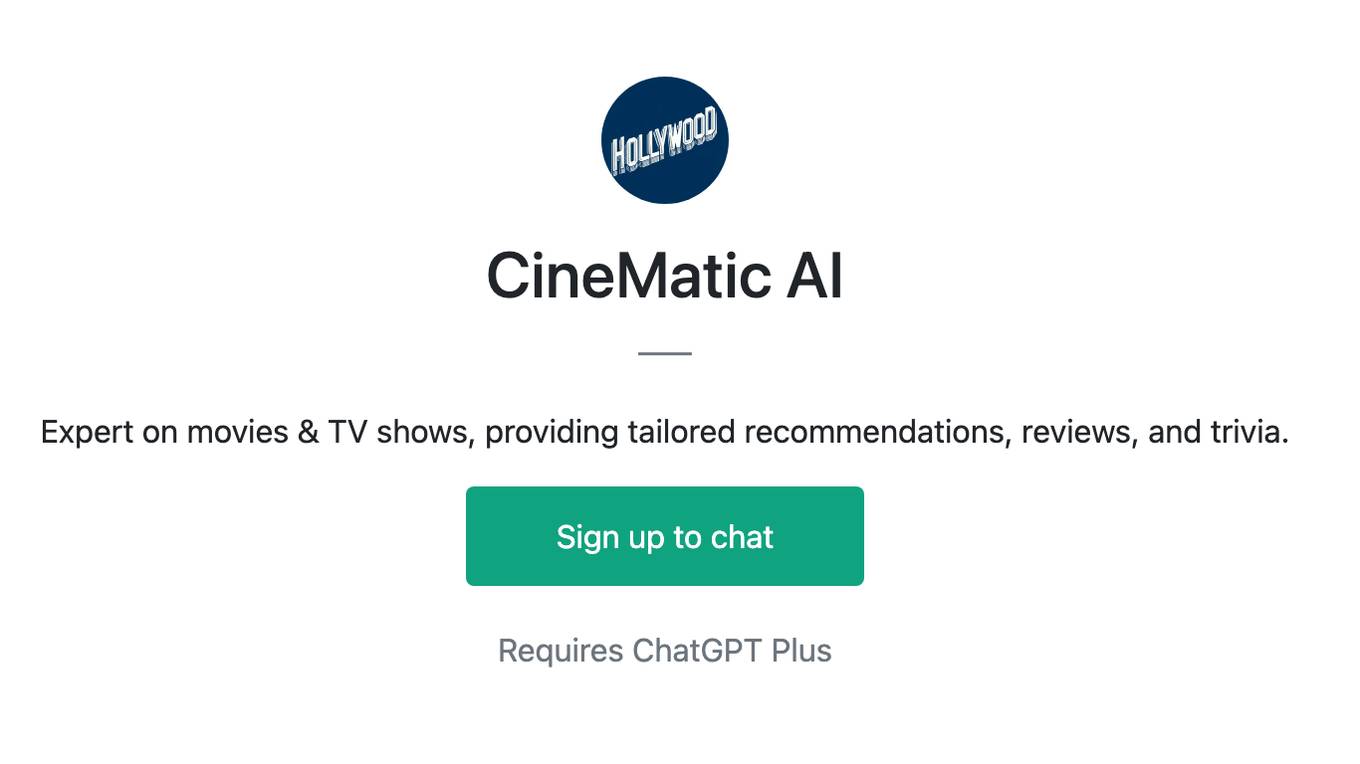
CineMatic AI
Expert on movies & TV shows, providing tailored recommendations, reviews, and trivia.

Book Lover : "Ethan"
Please upload an image of a book you love, and I will analyze your taste to recommend other great reads. Plus, engage in fascinating discussions about these books. It's time for exploring and talking about books!

IDA Pro Plugins recommendation expert.
Ask me to recommend a plugin or script from the official Hex-Rays plugin repository
